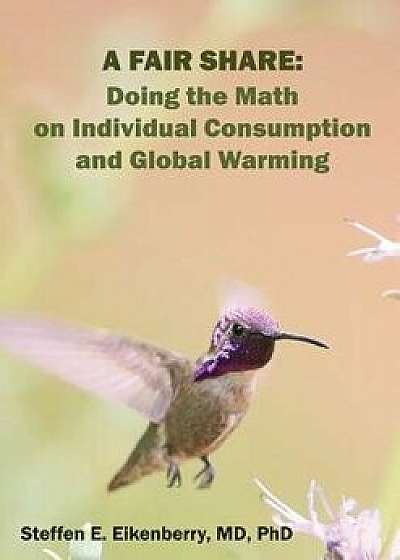
A Fair Share: Doing the Math on Individual Consumption and Global Warming, Paperback/Steffen Erik Eikenberry
Descriere
Global warming looms large, and seems beyond the ken of any one person to affect, while the notion that simply driving less or changing other habits could be of any real use seems to make a mockery of the enormity of the problem. However, a rigorous quantification of consumption shows that, far from a triviality, it is ultimately individual-level consumption that drives nearly all US carbon emissions, with the greater share due to those three basic things everyone does every day: get around (personal transportation), directly use energy (heating, cooling, lighting, etc.), and eating, all things one has direct control over day by day. The focus of this text is to rigorously quantify how all these behaviors drive global warming, and how they can reasonably be altered at the individual scale in meaningful ways. Furthermore, while hopefully accessible to a general audience, the text is meant to be scientifically rigorous, and so the mathematics and methods are not hidden from the reader's eyes. While making up just over 4% of the globe's population, the US is responsible for about 15% of global carbon emissions (and even more historically), with each American directly or indirectly responsible, on average, for over 20 metric tons of carbon dioxide annually; to meet near-term climate stabilization targets, this sum must be cut to no more than 10 to 15 metric tons, a task that is eminently achievable via simple changes in lifestyle and energy use. Indeed, there already exists profound variation across individuals in their carbon footprint with respect to all major categories of consumption, and so such changes are demonstrably achievable within American society as it currently exists. Not only would such changes take pressure off the climate system, but they would greatly aid the society-wide transition to a low-carbon infrastructure that must occur, either sooner or later. Looking at particulars, the typical American's 20+ tonne carbon dioxide footprint can be reduced by 2





